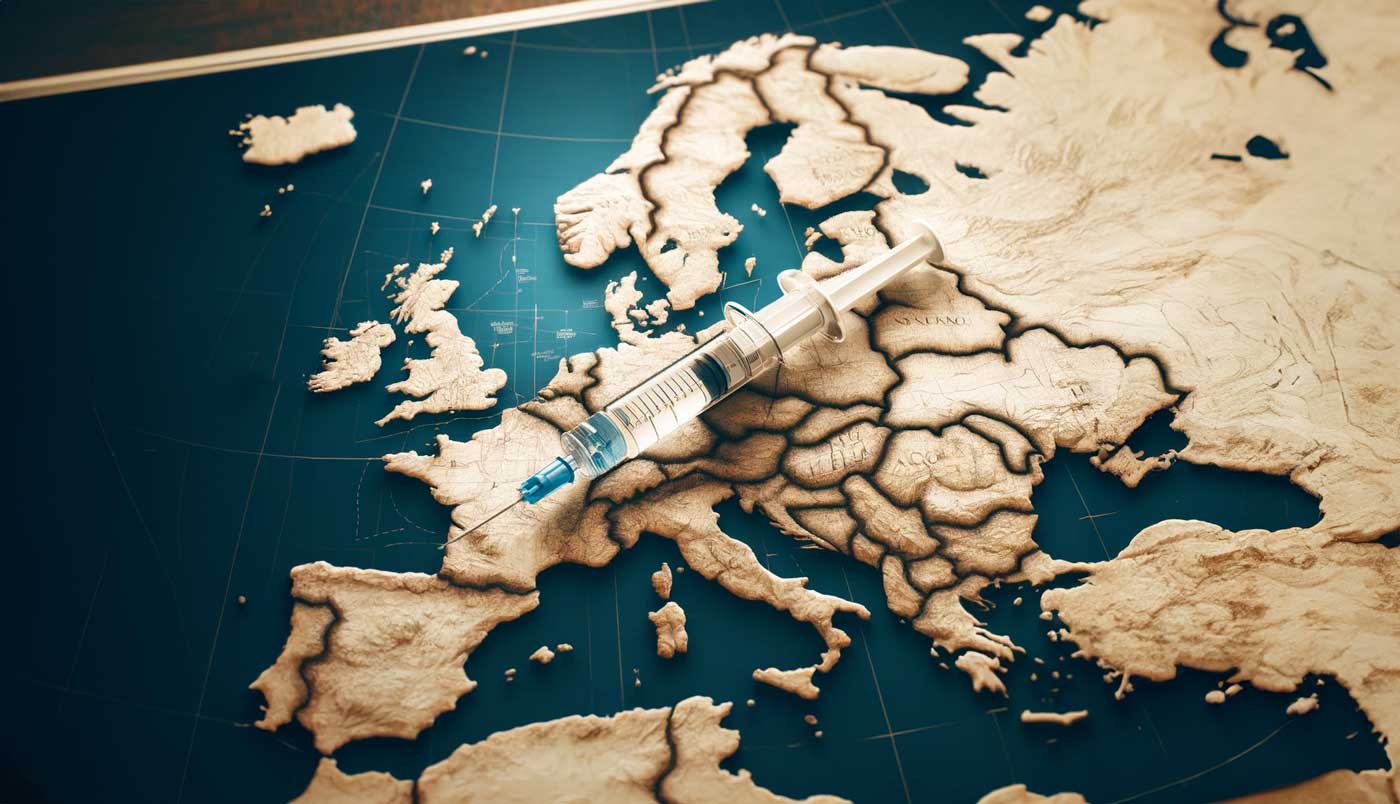Preamble
Aesthetic medicine is not a specialty in the same way as general medicine, dermatology, plastic surgery, gynecology, ophthalmology, hepato-gastro-enterology, otorhinolaryngology… It’s a sub-specialty.
In the vast majority of cases, it can only be performed by medical doctors. As you can imagine, this raises the issue of training. A gastroenterologist has no idea what botulinum toxin is, let alone hyaluronic acid. He has no expertise in medical lasers for aesthetic purposes, such as hair removal or resurfacing. In short, he is not trained in the practice of aesthetic medicine.
However, in strictly legal terms, he is authorized to practice. This may seem surprising, or even shocking, given that the practice of aesthetic medicine, if not rigorously, scientifically and safely supervised, can cause real harm to patients’ physical integrity. It is therefore the duty of every practitioner to train before practicing aesthetic medicine.
What you need to comply
Diploma recognition
First of all, a valid medical doctor’s diploma recognized in the country in which the practitioner wishes to perform aesthetic procedures is required. To do this, the practitioner must have his or her medical degree recognized in the country he or she wishes to practice in, if this is not his or her country of origin.
He must contact the competent authorities in each country (see list at the end of this article).
Authorization to practice
Once recognition of diplomas has been validated by the authorities, the practitioner must then obtain authorization to practice from the Conseil de l’ordre, cantonal doctors or other bodies that regulate the practice of physicians in the territory concerned. Once the practitioner’s authorization has been obtained, he or she must demonstrate mastery of the procedures he or she wishes to perform. That’s when it’s time to make the right choice and find a comprehensive training program, with quality lecturers, Evidence Based Medicine content and accreditation by European medical authorities.
Training in aesthetic medicine
This is where training in aesthetic medicine comes into play, with a wide range of courses on offer, both in terms of quantity and quality. The emphasis is on comprehensive, evidence-based training in all aspects of modern aesthetic medicine, with a solid theoretical phase, a knowledge assessment and a practical phase. Not only is solid, comprehensive training essential, but it will also enable you to be sure of your knowledge and mastery in the event of a conflict or side-effects affecting one of your patients. And finally, to reassure and promote your reliability to your patients.
Overview of training courses in aesthetic medicine.
University courses
Even if they are not recognized by the authorities, they are necessary, as they at least provide proof of a minimum level of training, which can be used by insurance companies and the authorities in the event of problems.
In Europe, some universities offer sub-specialty courses open to all medical doctors. Some are comprehensive, offering a complete approach to aesthetic medicine, but most are diplomas focusing on one theme of the specialty, such as lasers, injections, nutrition or epigenetics. For the most part, these university diplomas are not recognized by the medical regulatory authorities in the countries where they are issued. Qualities vary widely. Some are good, others a bit folksy. So it’s important to find out before you register.
Private training
There are a multitude of them in different European countries. These are often holistic and comprehensive, with varying degrees of quality and different teaching models. Some will be purely theoretical, others purely practical. Most of these private training courses lack recognition, or rely on state administrative recognition that has no value in terms of the scientific quality of the training. Some training courses offer out-of-date programs or programs that are out of touch with the day-to-day practice of modern aesthetic medicine. Still others are of good quality, but are geared more towards practitioners who are already experts and want to expand their knowledge and processing capabilities with increasingly advanced approaches.
A single training course offers a diploma, with a comprehensive, modern theoretical phase and a practical phase in which the practitioner works in real, progressive practice. This comprehensive and holistic hybrid training program is accredited by the highest body for the recognition of European medical training (EACCME), with CME/CPD continuing education points awarded. But I can’t tell you which one it is, so it’s up to you to find out 😉
List of diploma recognition centers by country
France
Depending on your situation and the origin of your diploma, several organizations may be involved in having your medical degree recognized in France.
For diplomas obtained in the EU or EFTA
If your diploma was obtained in a member country of the European Union or the European Free Trade Association, recognition is generally automatic. The Ordre des Médecins can also provide useful information on this subject(Ordre Médecins).
For diplomas obtained outside the EU or EFTA
If you obtained your diploma outside the European Union, you will probably have to pass specific tests before you can work in France. Knowledge Verification Tests (KVTs) are a key step in this process. After passing these tests, a two-year skills consolidation course (PCC) as an associate practitioner is generally required before being able to apply for definitive authorization to practice(PAPS Ile-de-France).
To start the procedure for recognition of your diploma, here’s how to contact these organizations:
Ordre des Médecins: You can visit their websites for more specific information on the recognition of medical qualifications www.ordre-medecins.org.
For knowledge verification tests (KVT) Detailed information is available on the Support portal for healthcare professionals in Ile-de-Francebut it is advisable to consult the Center National de Gestion (CNG), which organizes the VCAs, for the most up-to-date information and to register for the events.
It’s important to check the EVC registration dates, the specific requirements according to your situation, and to carefully prepare your file for recognition of your diploma in France.
Switzerland
For EU/EFTA diplomas
You should contact the Federal Office of Public Health (FOPH), more specifically the MEBEKO (Commission des professions médicales), which is responsible for the recognition of EU/EFTA medical diplomas. Here are the contact details:
- Address: Office fédéral de la santé publique OFSP, MEBEKO, Section “formation universitaire”, Schwarzenburgstrasse 157, 3003 Berne, Switzerland.
- Telephone: +41 58 462 94 83 (available from 9am to 12pm).
- Website: Federal Office of Public Health FOPH(Admin Bag).
For diplomas obtained outside the EU/EFTA
Generally speaking, Switzerland does not automatically recognize medical degrees obtained outside the EU/EFTA. However, you do have the option of registering your diploma with the Medical Professions Register (MedReg), or attempting to obtain a federal diploma if your diploma is not recognizable. For further information, you should also contact MEBEKO at the FOPH using the same contact details provided above(Admin Bag).
General information platform :
For more general information on the recognition of foreign professional qualifications, the information platform www.reconnaissance.swiss can tell you whether you need to have your qualifications recognized, and which body to contact. If you have any specific questions not answered on this platform, a contact form is available for help(Admin.ch).
Be sure to check all the specific information related to your situation and current requirements by contacting these organizations directly or visiting their websites for updated details.
Belgium
To have your medical degree recognized in Belgium, you’ll need to follow several steps, depending on your situation and the origin of your diploma. Here is a summary of the steps to take:
- Registration with the Order of Physicians: all doctors wishing to start a specialization in Belgium must be registered. The procedure can be initiated with the provincial council or via the Ordre des Médecins website(OrdoMedic).
- Recognition of specialist training: this must be done at the same time as the application for recognition of the basic diploma, or after obtaining the visa for authorization to practice and registration on the roll of the Ordre. You must apply to the community that recognized your basic diploma(OrdoMedic).
- For diplomas obtained outside the EU/EEA and Switzerland :
The equivalence of your diploma must be requested from one of the Belgian Communities (Flanders, Wallonia-Brussels, or the German-speaking Community) depending on the language of your application.
Once you have obtained your attestation of equivalence, you must apply to the Federal Public Health Service (OrdoMedic) for authorization to practice. - Specific services for doctors with diplomas from outside the EU: If you obtained your diploma in a country outside the European Union, you must contact the Cellule des équivalences des diplômes of the Fédération Wallonie-Bruxelles for equivalence of your diploma, and then the Conseil de l’Ordre des médecins for registration (Ordre des médecins (ombbw)).
Here are the important contacts to start these procedures:
- Ordre des Médecins de Belgique : To register with the Order and for detailed information on recognition of your specialist training. More information is available on their website.
- Fédération Wallonie-Bruxelles (for French-speaking applications) : For diploma equivalence, contact the Direction Générale de l’Enseignement Non Obligatoire et de la Recherche Scientifique (DGENOR), Cellules des équivalences de diplômes, Place A. Lavallée 1 – B-1080 Brussels. More details on their website.
Telephone: +32 2 690.89.40 (Open Tuesdays from 2pm to 4pm and Thursdays from 9am to 12pm).
- SPF Santé Publique (Federal Public Health Service): For professional licenses, especially if you have a degree from outside the EU/EEA and Switzerland. Contact by email: visa@health.fgov.be.
Be sure to check the latest updates and necessary documents directly on the sites mentioned or by telephone contact, as procedures may change.
Spain
For information on how to have your qualifications recognized and practice medicine in Spain, please consult the website of the Spanish Ministry of Education and Vocational Training. They provide detailed information on the procedure for recognizing foreign diplomas, including the steps to be taken and the documents required. You can find out more about this process in the document available on their website: Spanish Ministry of Education and Vocational Training(Educacionyfp).
Italy
To have your medical degree recognized in Italy, you should contact the Ministero dell’Università e della Ricerca (Ministry of University and Research ) or the Ministero della Salute (Ministry of Health). These bodies are responsible for recognizing professional qualifications in Italy, including for the medical professions. They will be able to provide you with detailed information on the procedures to follow, the documents required and the evaluation criteria for your diploma.
Germany
The procedure for obtaining recognition of your medical degree in Germany depends on whether you come from within or outside the EU.
If you are from the EU
The “Anerkennung in Deutschland” website is the German federal government’s official information portal on the recognition of foreign professional and academic qualifications in Germany. It provides details of the recognition procedure, including for doctors. You will need official approval, an unrestricted professional license, to practice as a doctor in Germany. The detailed procedure for obtaining this approval and the recognition of your foreign professional qualifications is available under the heading“Doctor of medicine (m/f)” on their website(German Recognition Portal).
For further information, please contact the Service Center for Professional Recognition on +49 30 1815 1111, or visit their website(German Recognition Portal).
If you are coming from outside the EU
The Bundesärztekammer (German Medical Association) provides information on the recognition of training qualifications for doctors from countries outside the EU, EEA and Switzerland. You’ll need a license to practice medicine in Germany, whether as a medical assistant in specialist training or as a specialist. The licensing authorities are the health authorities of the individual federal states. A competency test covering internal medicine and surgery, among others, may be required if substantial differences are identified between your training and that required in Germany. In addition, proof of German language skills is generally required(Bundesärztekammer). For specific information, including procedures and proficiency tests, please contact the relevant federal state health authority.
Contacts :
- Anerkennung in Deutschland (For EU graduates): for details of the recognition procedure, visit www.anerkennung-in-deutschland.de or call +49 30 1815 1111 for advice.
- Bundesärztekammer (for non-EU graduates): for more information on recognition of qualifications and competency tests, visit www.bundesaerztekammer.de or contact them directly via info@baek.de.
These steps are essential to ensure that you can practice medicine in Germany with all the necessary qualifications and in compliance with local standards.
Luxembourg
General procedure
Applications for professional recognition must be submitted to the French Ministry of Research and Higher Education (MESR) along with various documents, including a copy of your diploma and, if applicable, proof of professional experience. Non-French, non-German, non-Luxembourg or non-English documents must be accompanied by a sworn translation. The procedure can be carried out online or by post, for a fee of €75. Processing an application can take between 4 and 6 weeks(Gov LU).
Specificities by Diploma Origin
- For EU graduates: academic and professional recognition in Luxembourg is aimed at access to a regulated profession. It is important to note that this recognition does not confer the right to use a specific academic title, nor does it provide information on the level of qualification according to the Luxembourg framework(Gov LU).
- To practice certain healthcare professions: you must first obtain authorization from the Ministry of Health. This request must be made online via MyGuichet.lu. The page contains information on the conditions and steps required to obtain a license to practice and for recognition of equivalence of your diplomas(Portail Santé – Luxembourg).
Aptitude test
For those whose professional recognition requires compensatory measures, such as an aptitude test or adaptation period, these measures are designed to make up for any differences between the qualifications obtained and the requirements of the profession in Luxembourg. Successful completion of these measures is a prerequisite for applying to the Ministry of Health(Gov LU) for professional licensure.
Contacts and further information
For more details on the procedure, including the documents required and payment methods, please consult the MESR and Ministry of Health websites. For specific questions, the Ministry of Health can be contacted on (+352) 247 85505 or by e-mail at professions.sante@ms.etat.lu(Portail Santé – Luxembourg).
This procedure is essential to ensure that you can legally practice medicine in Luxembourg, in accordance with local standards and regulations.
Austria
To have your medical degree recognized in Austria, contact the Austrian Medical Chamber (Österreichische Ärztekammer).
The organization is located at Weihburggasse 10-12, 1010 Vienna, and can be contacted by e-mail at international@aerztekammer.at.
Recognition of medical qualifications issued by a member state of the EU, EEA or Switzerland is ensured by the Austrian Medical Chamber in accordance with the Professional Qualifications Directive 2005/36/EC. For more information, please visit their website(Unternehmensserviceportal).
Conclusion
To conclude this detailed article on the practice of aesthetic medicine in Europe, it is clear that a commitment to rigorous, recognized training is essential. Navigating the legal and educational landscape requires not only a thorough understanding of the various regulations in force, but also a determination to pursue quality education. Whether through university or private training, the importance of choosing a comprehensive, modernized and accredited program, such as that offered by SAMBA, cannot be underestimated. Beyond qualifications, it’s the promise of a safe, ethical and prosperous practice that’s at stake. So, whether you’re just starting out in your career or looking for further specialization, investing in solid training is a step towards excellence in the field of aesthetic medicine.






